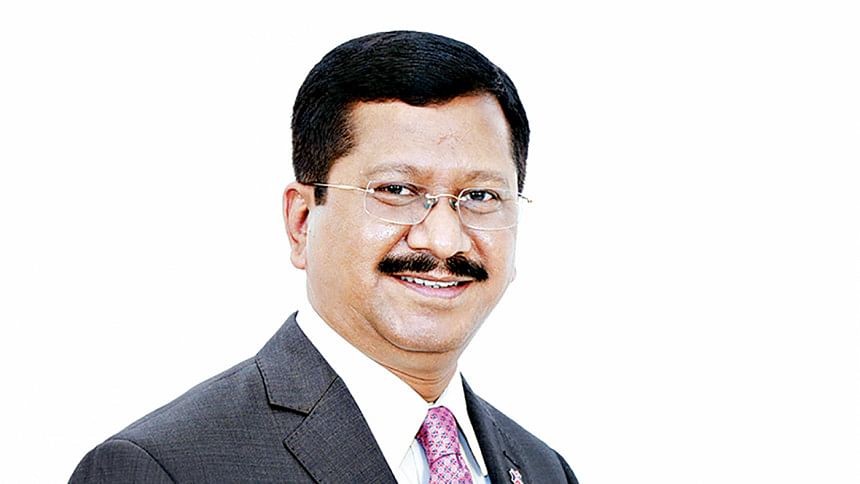Salman F Rahman used IFIC Bank for personal gains

Salman F Rahman, the former chairman of IFIC Bank and a trusted adviser to ousted Prime Minister Sheikh Hasina, used the bank for his personal benefit, said Md Mehmood Husain, independent director and current chairman of IFIC Bank.
"Despite holding only a 6 percent stake, the conglomerate heavily influenced IFIC and benefited from approximately Tk 10,000 crore in loans -- this posed a major risk for a bank of this scale," he told The Daily Star in an interview recently.
Although Beximco Group -- where Rahman served as vice-chairman -- did not directly take loans from the bank due to legal restrictions, investigations found that a significant portion of loans was funnelled to companies, with the sprawling conglomerate as the ultimate beneficiary.
The Bangladesh Bank's restructuring of the IFIC board in September last year helped free the bank from Beximco Group's influence.
Before August last year, IFIC reported a bad loan ratio of less than 5 percent.
However, after a thorough review, the bank's real asset quality was revealed. Many of the loans extended to companies linked to Salman F Rahman defaulted by the December quarter, pushing the ratio to an estimated 26-27 percent, Husain said.
Asked about the controversial IFIC Aamar Bond to fund a real estate project in which Rahman and his son Ahmed Shayan Fazlur Rahman have stakes, Husain said the bank serves as its guarantor.
While the bank is currently able to pay the bond's coupon due to pre-deposited funds, uncertainty remains regarding the principal amount.
"The promoter of the project is a fugitive, with some key individuals either in jail or outside the country. The government is exploring a solution, but the future of Aamar Bond remains uncertain. In case of default, IFIC would be liable."
Husain criticised the bank's previous governance structure, stating that the 16-year tenure of the Awami League-led government was not characterised by an effective management culture.
"The absence of proper leadership significantly harmed the bank from an ethical standpoint."
The bank is currently struggling to recover a significant portion of the loans disbursed to politically exposed individuals and AL-aligned conglomerates.
"Many of these borrowers have either fled the country, are in jail or remain untraceable. We are assessing the collateral associated with these loans to verify their valuations."
Additionally, the board has directed the management to identify other movable and immovable assets of defaulting borrowers, Husain said.
With a network of 1,422 branches and sub-branches, IFIC had deposits amounting to Tk 50,000 crore in June last year.
However, following the political transition, the bank faced massive deposit withdrawals, causing deposits to decline to Tk 44,400 crore by October as public confidence wavered.
The bank also faced a severe shortfall in its Cash Reserve Ratio (CRR) and Statutory Liquidity Ratio (SLR) with the BB. At one point, the shortfall reached thousands of crores.
"Following the political change, IFIC faced a severe crisis, leading many to fear that it would go bankrupt. However, we managed to reverse the situation and rebuild public trust."
By November, IFIC recorded a net deposit growth of Tk 1,036 crore, bringing total deposits to Tk 47,750 crore in December, Husain said. The bank has since stabilised its CRR and SLR, with no current shortfall.
Husain outlined the new board's commitment to restoring transparency and accountability within the bank.
"We have made it clear that IFIC will operate professionally and ethically. There will be no tolerance for non-transparent transactions, inefficiencies, or dishonesty," he said, adding that internal disciplinary actions will be taken against those involved in irregularities and misconduct.

 For all latest news, follow The Daily Star's Google News channel.
For all latest news, follow The Daily Star's Google News channel. 








Comments